I am trying to solve a problem which is: Find all ancestors of a particular node in a binary tree.
Input: root, targetNode
Output: An array/list containing the ancestors
Suppose, we have the above binary tree as an example. We want to find the ancestors of the node 4. The output should be [3, 5, 2, 4]. If the node is 8, the output is [3, 1, 8]
To solve this, I have written a function which implements DFS.
var ancestor = function(root, target) {
var isFound = false;
const dfs = (node, curr) => {
if (node === null) {
return curr;
}
if (node.val === target.val) {
curr.push(node.val);
isFound = true;
return curr;
}
curr.push(node.val);
const left = dfs(node.left, curr);
if (!isFound) {
const right = dfs(node.right, curr);
curr.pop();
return right;
} else {
curr.pop();
return left;
}
}
console.log(dfs(root, []));
};
But it is not returning the correct ouput. For example, if the targetNode is 7, the output is [3], if the targetNode is 8, the output is also [3]. If I remove the line curr.pop() the output is also invalid. for targetNode 7 it is [3 , 5, 6, 2, 7]. I think I found the issue where I am making mistake. While backtracking, I am doing something wrong with the remove of the node that was pushed in the curr array. If I pass a string instead of the array, it prints the output correctly.
var ancestor = function(root, target) {
var isFound = false;
const dfs = (node, curr) => {
if (node === null) {
return curr;
}
if (node.val === target.val) {
curr += node.val;
isFound = true;
return curr;
}
const left = dfs(node.left, curr + node.val + '->);
if (!isFound) {
const right = dfs(node.right, curr + node.val + '->);
return right;
} else {
return left;
}
}
console.log(dfs(root, ''));
The above code with string instead of array prints the output correctly, If I pass targetNode 7, output is 3->5->2->7
My question is, how to properly unchoose/backtrack here? Or is there anything else that I am doing incorrectly? Thanks in advance.
